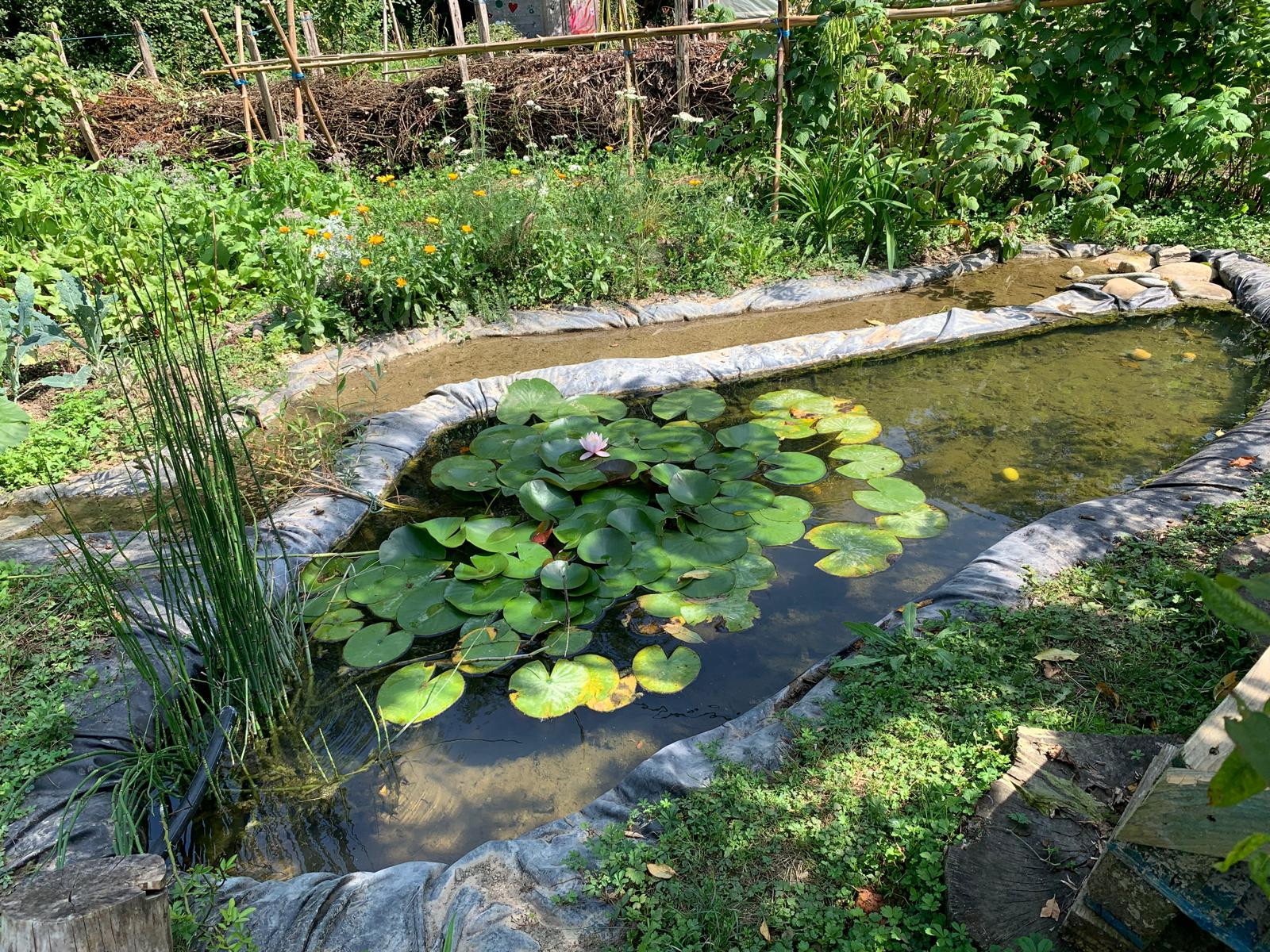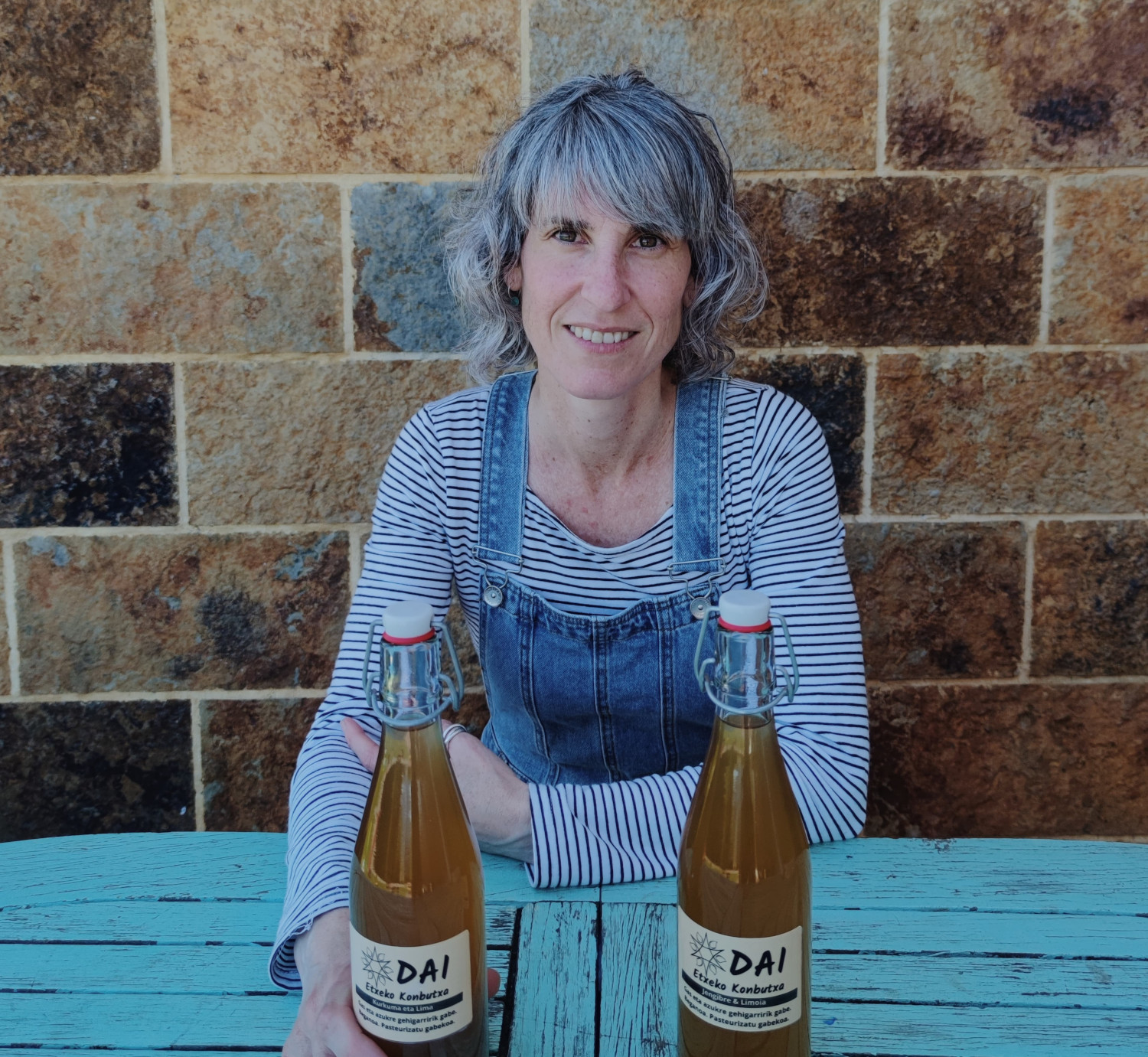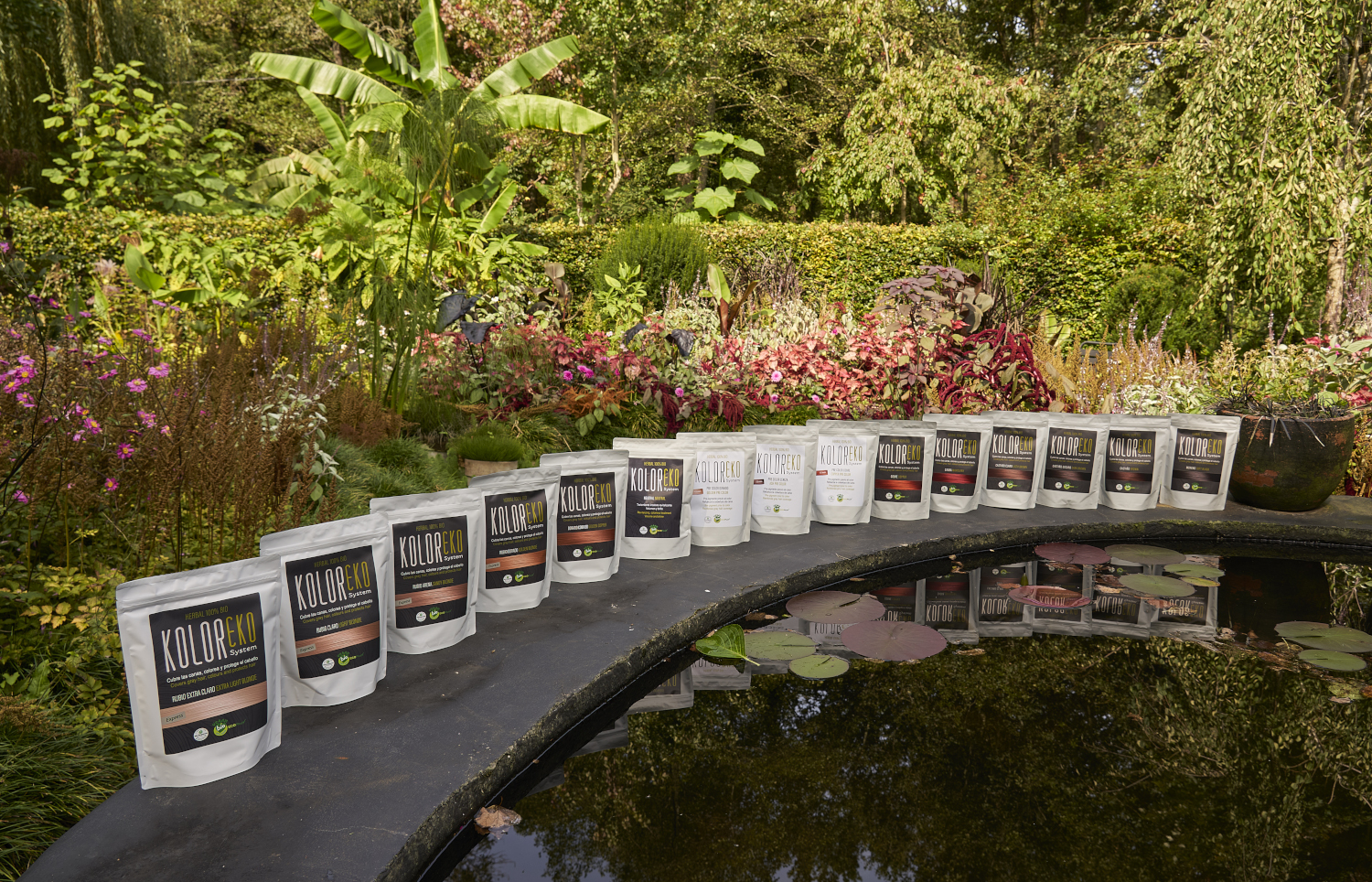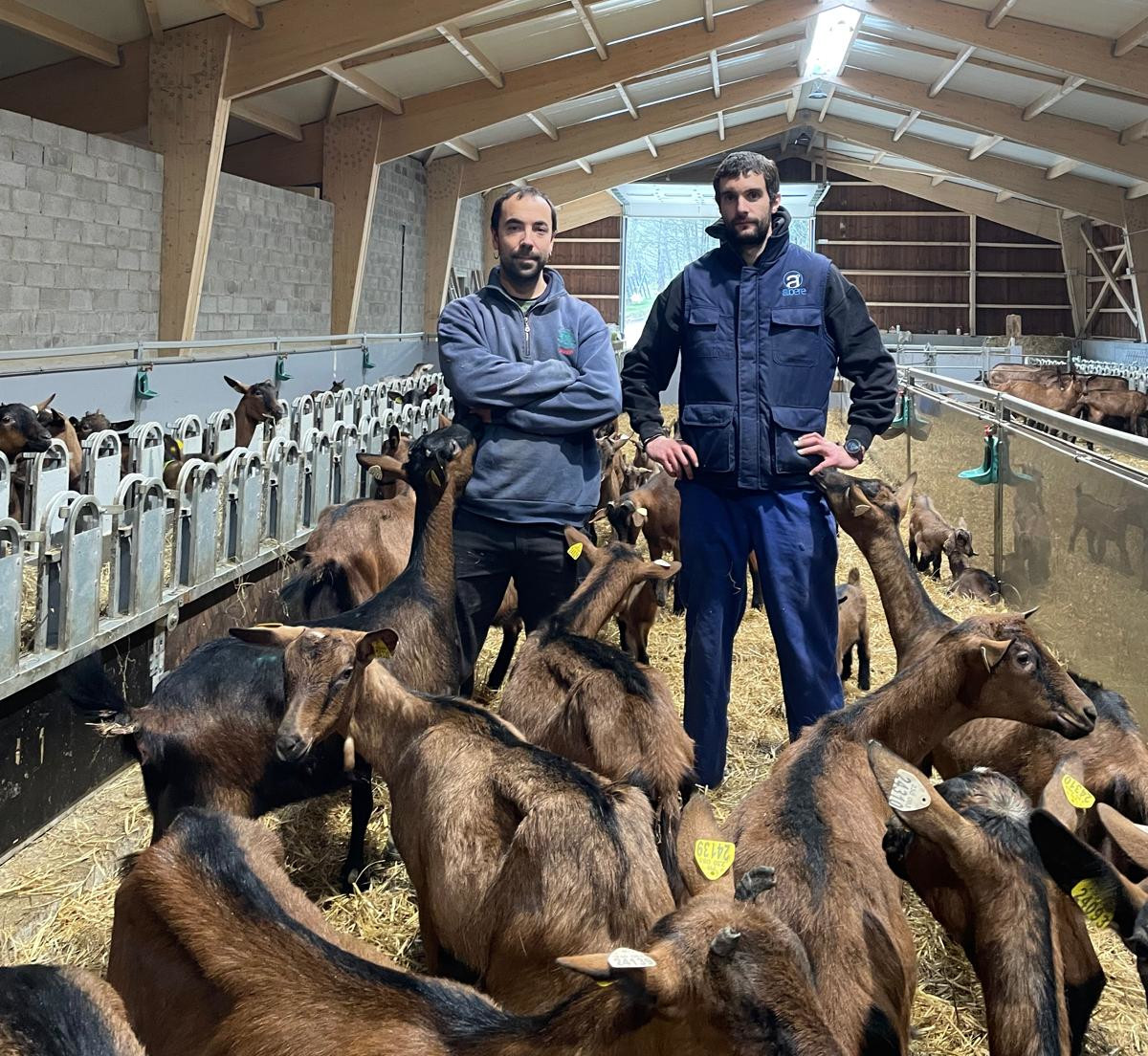Collective garden in Maule to sow social relations
- One of the lines of work of Xiberoko Kolektiboa is to promote the network between citizenship and spaces for social life. On this road, in 2020 they were presented with the opportunity to create a collective garden in Maule and, no doubt, decided to undertake the project. “It was some neighbors who proposed to make a collective garden in a territory of Maule that became empty and we gradually worked on the project,” explains Miren Juzan, of the initiative. The orchard is made today among seven neighbors, in collaboration with the association.

Before the arrival of the Collective of Zuberoa, there was a small shared garden on this plot, but the previous ones abandoned it. “These plots are owned by the House of the People of Maule and we pay them a symbolic rent, one hundred euros a year,” Juzan said. On the plot, besides growing vegetables, they have flowers and fruit trees and a small pond. “This pond was built by an aide and we also made cabins together to fit materials,” he says.
There are three families currently active in the collective garden, a total of seven people. “Among them are people born in Maule, but also people coming from outside,” he explained. For example, a family that has arrived not long ago from Africa is immersed in the project. “In their country they were engaged in agriculture and the garden is very important for them.” The land is cultivated without pesticides or synthetic products in a biological way and then distributed among them horticulture and fruits. However, part of the production is transferred to the social warehouse of the collective, where people in vulnerable situations can get food below the usual prices.
"Many relationships around the garden"
In addition to the production of vegetables and fruits, one of the main objectives of the project is to strengthen ties between citizens. The members of the collective garden meet on Monday morning to distribute and organize the work, and often meet with the association to organize other animations and events in the garden: “In the association there are also children and young people, and with them we propose animations along the orchard, theatres and much more.” Next to the plot there is a fountain and many neighbors come close in search of water. “People often stay looking at the garden, they ask questions… there are many relationships around this garden,” he added.
Juzan states that the journey of these years has been beautiful and that the challenge for the future is to maintain the project. “It is not always easy to maintain the collective garden, to have communication and social relationships. So, the important thing is to keep it,” he concluded.
Duela lau urte abiatu zuten Azpeitian Enkarguk proiektua, Udalaren, Urkome Landa Garapen Elkartearen eta Azpeitiako eta Gipuzkoako merkatari txikien elkarteen artean. “Orain proiektua bigarren fasera eraman dugu, eta Azkoitian sortu dugu antzeko egitasmoa, bere izenarekin:... [+]
Donostiako Amara auzoko Izko ileapaindegi ekologikoak 40 urte bete berri ditu. Familia-enpresa txikia da, eta hasieratik izan zuten sortzaileek ile-apainketan erabiltzen ziren produktuekiko kezka. “Erabiltzaileen azalarentzat oso bortzitzak dira produktu gehienak, baina... [+]
Ubidekoak (Bizkaia) dira Imanol Iturriotz eta Aritz Bengoa gazteak. “Lagunak gara txikitatik, eta beti izan dugu buruan abeltzaintza proiektu bat martxan jartzeko ideia”, azaldu du Iturriotzek. Nekazaritzari lotutako ikasketak izan ez arren, baserri munduarekin eta... [+]
Iruñean bizi ziren Iñaki Zoko Lamarka eta Andoni Arizkuren Eseberri gazteak, baina familiaren herriarekin, Otsagabiarekin, lotura estua zuten biek betidanik. “Lehen, asteburuetan eta udan etortzen ginen eta duela urte batzuk bizitzera etorri ginen”, dio... [+]
Gipuzkoako hamaika txokotatik gerturatutako hamarka lagun elkartu ziren otsailaren 23an Amillubiko lehen auzo(p)lanera. Biolur elkarteak bultzatutako proiektu kolektiboa da Amillubi, agroekologian sakontzeko eta Gipuzkoako etorkizuneko elikadura erronkei heltzeko asmoz Zestoako... [+]
Emakume bakoitzaren errelatotik abiatuta, lurrari eta elikadurari buruzko jakituria kolektibizatu eta sukaldeko iruditegia irauli nahi ditu Ziminttere proiektuak, mahai baten bueltan, sukaldean bertan eta elikagaiak eskutan darabiltzaten bitartean.





















